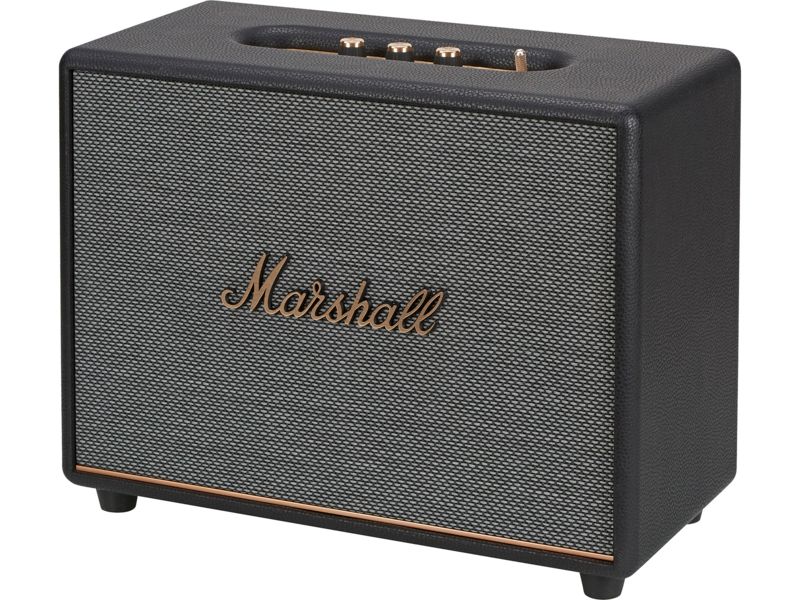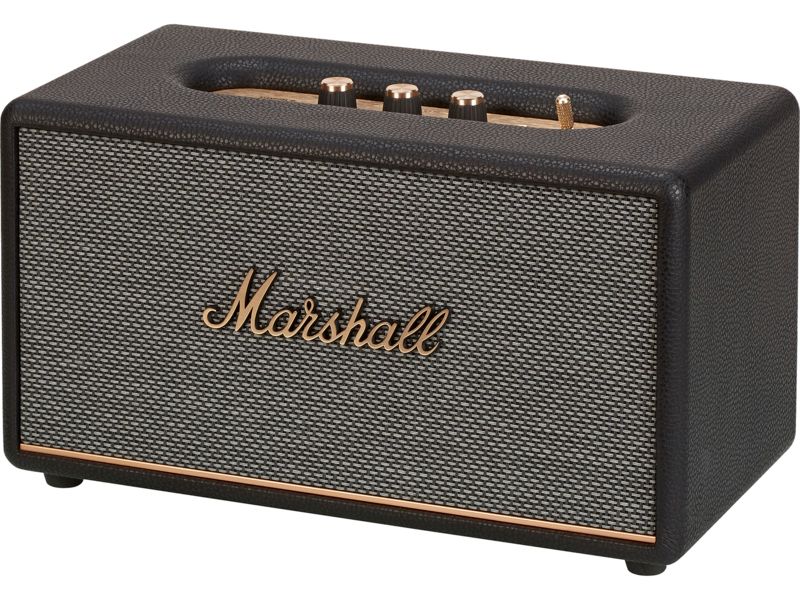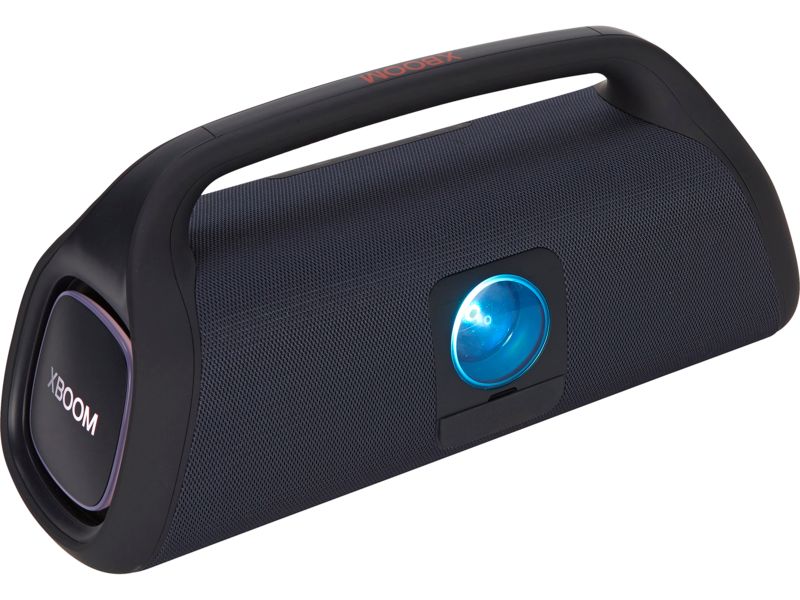How we test wireless, smart and Bluetooth speakers

In this article
- What are Which? Best Buys, Don’t Buys, and Great Value models?
- How we test sound quality
- Does the battery life match the manufacturer's claims?
- How easy is it to use?
- What additional features does it have?
- Is my personal data secure?
- Will my wireless speaker last?
- Voice assistants like Alexa and Google Assistant
Which? tests things properly - we test speakers at our professional audio lab using dedicated experts in the field, and we don't take advertising. This means our recommendations are entirely independent and tell you how it is, rather than being biased by big brand marketing or hype. Find out more about how we test below.
Whether you're looking for a large speaker with powerful sound or a portable Bluetooth speaker you can easily take around with you, Which? has got you covered.
We put every speaker through the same assessments, regardless of brand or price, so you compare every speaker directly against each other using our star ratings. We also test a very wide range of audio products on the market, so we can find the genuine bargains rather than many publications that just focus on the most well-known products.
We rate sound quality using a dedicated five-member expert listening panel, who have decades of experience between them - so they really know how to sort the diamonds from the trash.
Our expert lab also conduct technical testing of the audio equipment, and rate how easy it is to use, so you know the product is as great to use as it sounds. The information we provide is easy to understand, giving you the exact evidence you need to make an informed buying decision – and avoid being caught out.
We don’t beat around the bush – we tell you exactly the truth, and if it’s bad, we say so.
To find out the very best speakers on the market, head straight to our expert wireless and Bluetooth speaker reviews, or read on to really get to know how our tests work.
What are Which? Best Buys, Don’t Buys, and Great Value models?

The speakers that impress the most in our tests are made Best Buys. A speaker that scores at least 70% in our professional tests earns our Best Buy recommendation, but you should still read our reviews to check for any factors that might impact your buying decision.
Speakers that receive a poor score of 45% or lower are Don’t Buys and should be avoided – these will have poor sound and so there are far better options for the money.
Great Value models do pretty well in our tests – scoring 60% or more. They're also at least 20% cheaper than the average cost of a wireless speaker of a similar design in our tests – such as another smart speaker. These are models highlighted by our experts to go for if you're looking for a bargain. Some Great Value models will score well enough to also be Best Buys.
How we test sound quality
It's easy for reviews to say a speaker 'sounds good', but how do you know which really sound better than others?
That's where Which? do things differently. We compare the sound quality of all speakers directly against each other using a benchmarking system, so you know which speakers we've reviewed sound better than others.
We use a completely impartial five-member listening panel who are genuine experts in their field and can discern small differences in sound quality - they have assessed many hundreds of speakers over the years and so are dab hands at finding the truth, without being biased by brand hype or marketing.
The listeners have a range of ages and musical tastes, and we test across a wide range of musical genres covering classical and pop as well as speech, so you can rely on a Best Buy speaker to sound exceptional no matter what you're listening to. Find out what they say in our reviews, and we also summarise their scores as star ratings in the 'test results' section, so you can easily the sound quality of speakers against each other.
To conduct their listening sessions in the most consistent way possible, the lab connect each speaker to the same devices and put it through this mixture of sound quality and technical tests. Our lab technicians back up the ratings from our listening panel with technical frequency response assessments, which provide secondary evidence that supports what the panel report during their listening sessions.
Two speakers may have a similar sound quality, but one is more expensive as it has a much higher maximum volume. To account for this, we also provide maximum volume star ratings so you know which speaker has the higher volume (before their sound begins to distort), and also let you know if a speaker spreads its sound in all directions - so you can be confident it'll sound great no matter where you are in the room.
This means our tests are exceptionally rigorous and leave no stone unturned so you can make sure you avoid being disappointed by an over-hyped product.
Does the battery life match the manufacturer's claims?

Some speakers can't even get near the five-hour mark while others easily exceed 30 – our real-life tests reveal the truth.
At Which? we wouldn’t usually award Best Buys to products that don’t have user-replaceable lithium ion batteries. However, there are currently very few portable speakers that allow you to replace their batteries yourself, so this doesn’t affect our recommendations for speakers with batteries.
Nevertheless, if you buy a portable speaker that our tests confirm really lasts for 20 hours or more, you can be confident the speaker should be practical to use for many years, even if the battery life starts to shorten over time.
How easy is it to use?
Our lab experts have assessed speakers for years, and so really know what the pitfalls are with using speakers. Many can be surprisingly temperamental to set up, and others have made remarkably bad design choices.
We assess each speaker according to a series of typical everyday scenarios, including how easy it is to set-up out of the box and connect to your devices - be it Bluetooth, wi-fi or via a wire. We also look at everyday and advanced functionality, including how clear the instruction manual is, and whether the controls are simple and convenient.
For wi-fi speakers we also assess how easy it is to create a multi-room speaker system, and we conduct technical checks on the stability of all wireless connections to ensure there are no issues.
How we test apps

What additional features does it have?
Our testing goes deep - if the speaker has any additional features, we test these too. This includes equalisers to adjust the sound to your personal preferences (such as treble and bass), plus radio and music streaming services support such as Spotify, BBC Sounds and Apple Music. We also test all speakers using both Apple And Android devices, so we check their compatibility with your preferred smartphone operating system (including Apple AirPlay).
Is my personal data secure?
Many speakers are connected to your home wi-fi and the internet. Our professional lab conducts extensive privacy and security screening on all wi-fi-connected speakers (and their apps) to check for issues that would raise concern. We will alert you in our reviews if we find any vulnerability, and also alert manufacturers and government where we find areas where security could be improved. This privacy and security testing does not affect the overall score we give a product – however, if we find anything serious and the manufacturer does not promptly release a fix, we clearly mark such product as a Don’t Buy you should avoid.
Will my wireless speaker last?
If we detect a fault with a product during testing, we'll buy a replacement to see whether it's a one-off issue and to get to the heart of the problem. We'll also speak to manufacturers directly to help remedy any problems that arise during testing and what they plan to do in response - and raise any concerns we have in our reviews.
And we don't just leave it there - we conduct regular surveys of actual Which? members to ensure that the speakers go the distance - so you're not caught out by a speaker that seems great, only to fail on you just outside its warranty. If we find any speaker brand that's letting down its buyers, you can be sure we'll alert you in our reviews - as well as contact the manufacturer to see if there is a particular issue. If they don't rapidly mend their ways, we'll make their speakers Don't Buys so you can avoid a costly mistake.
Voice assistants like Alexa and Google Assistant

Some wireless speakers have built-in voice assistants - Alexa, Google Assistant or a small number with Apple's Siri. These are what are called smart speakers, and the voice assistants allow you to control them hands-free with voice commands. Popular products include the Amazon Echo and Google Nest ranges.
There are also a subset of these smart products that also have a large touchscreen - these are known as smart displays, and examples include the Amazon Echo Show and Google Nest Hub products.
Smart speakers and smart displays can perform a vast array of tasks beyond simply music and radio controls – you can also ask them things like the weather forecast or the latest news, or when the local supermarket closes.
However, we conduct regular surveys that reveal that the vast majority of smart speaker owners - and a smaller majority of smart display owners - still use their devices in large part for radio and music listening, so this remains a large part of our verdicts on these products, alongside assessing their additional smart functionality.
Should I buy it?
Every speaker we test gets a Which? test score so you can see which are the best and worst. Since we test every product in the same way using rigorous processes at our lab, it also means you can compare the results of each product directly against each other so you can see exactly how two particular models compare - just click on the Test Results tabs in our reviews to compare the individual star ratings of one product against another.
Our Best Buy speakers are the ones that have truly excelled in our testing - they're the best-performing models on the market.
It's all about performance though - we don't take into account price. So if our Best Buys look too expensive, we also recommend Great Value models that also perform nearly as well, but can be much cheaper. So these are the recommendations to consider if you're looking for a superb product on a budget.
We use set criteria to determine the overall test score we give to each wireless speaker. These are weighted differently depending on whether a wireless speaker is portable or for home use. We define portable speakers as those with built-in rechargeable batteries - most of these will be suitable for taking outdoors, but some may be designed principally for indoor use.
Home speaker scores are weighted on the below criteria:
- 65% sound quality
- 25% ease of use
- 5% energy efficiency
- 5% features
Portable speaker (battery-powered) scores are based on the following criteria:
- 60% sound quality
- 25% ease of use
- 10% battery life
- 5% features
If the model is a smart speaker (those with built-in voice assistants), there are additional tests for the voice assistants included in the above ease of use weightings. Most smart speakers are home speakers as they aren't battery powered.
Smart displays like the Amazon Echo Show, have a sizeable touchscreen and voice assistants.
Small smart hubs like Amazon Echo Dot and Google Nest Mini are principally designed simply to be a way to access voice control rather than for music.
Both these types of products have scores based on:
- 35% sound quality
- 55% ease of use (when relevant, including the quality of the touchscreen display)
- 5% energy efficiency
- 5% features
We weight the sound quality lower for smart displays, as this reflects the wide range of uses for smart displays beyond simply music and radio listening, such as for controlling smart home devices.
If you’re unsure which category a particular speaker is tested according to, click on the Tech specs dropdown in the review and check the entry 'Type of speaker' at the top.
Speakers must score at least 70% to be a Best Buy. Speakers must score at least 60% to be considered Great Value, as well as be 20% cheaper or more than the average price of that type of speaker we've tested. Speakers that score 45% or less we highlight as Don't Buy models to avoid.



